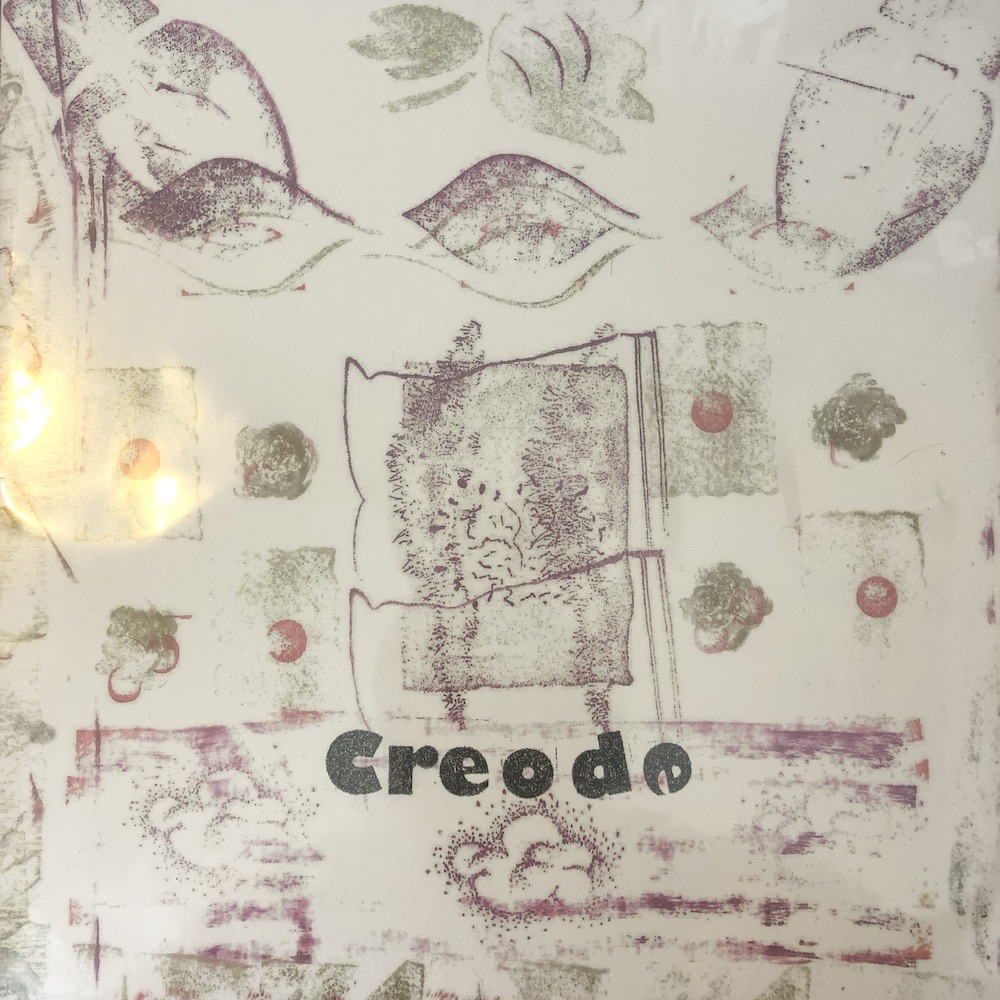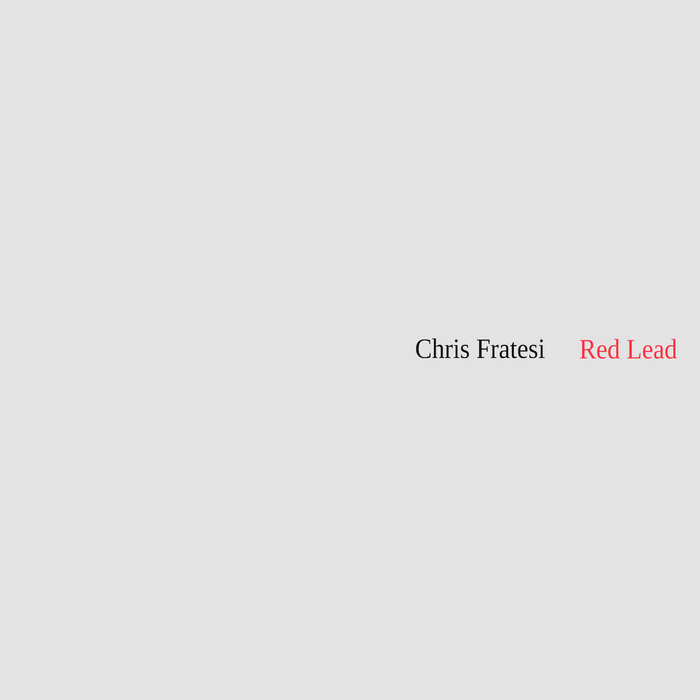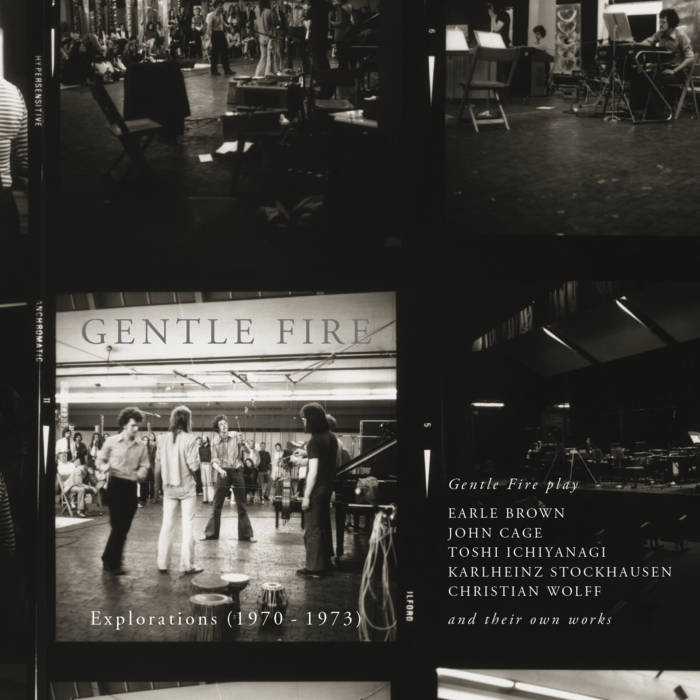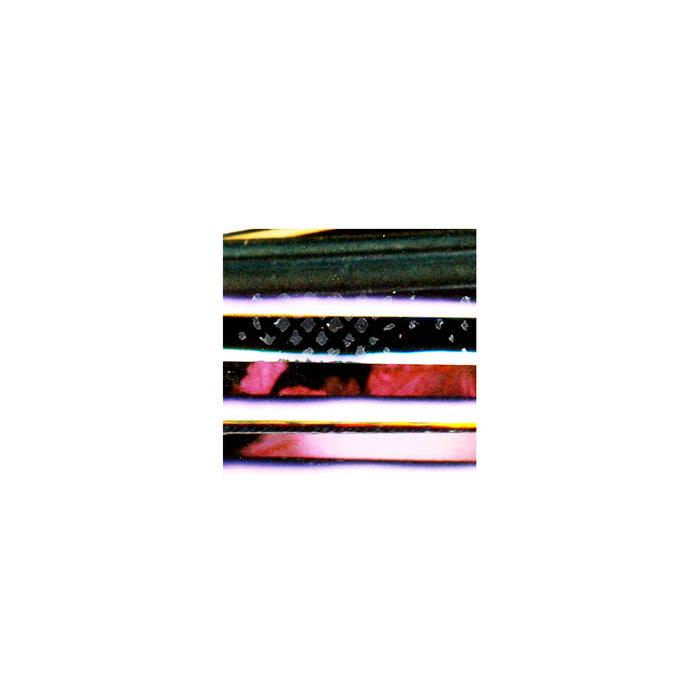Creode – Ectroni (Alien Passengers)
I’ve raved about Creode (+ all related projects of members Samantha Flowers & Tyler Hicks) to anyone who’d listen since first seeing them level a warehouse living room around 6 years ago. For nearly as long I’d heard an LP was in the offing, and am glad to report that Ectroni is worth the wait! What accounts for their buoyancy? How did they become so adroit at this particular brand of “Cosmic Tango”? Sam and Tyler are both talented musicians with great taste and that goes a long way of course, but there is something else happening in their work together that is hard to articulate. I guess it comes down to them being able to transmit the best elements of that whole permafried Midwest “jammer” aesthetic while at the same time managing some…ehhh…quality control. Likewise, Ectroni has a very esoteric and timeless quality to it, not studied or retro, but tapping straight into that sort of queasy, subterranean vein that would seem just as natural coming from a Smegma or Mnemonists off-shoot, or dusted mega-rarity mystery ala Udder Milk Decay or Vogelscheiß Und Seine Verrückten Kröten, as it is wafting up out of a contemporary Detroit basement. The primary instrument seems to be synth/electronics, all improvised I am guessing, but in a very odd, circular manner. There’s never any resolution, no climax, no harsh or particularly abrasive sounds, almost ‘playful’ at times, and totally puzzling in its ineffable abstraction. Maybe we can call it something like “sound poetry without words”? Or better yet, call it nothing and flip this early contender for ~*Album Of The Year*~ (Oh! What prestige!) over for another listen.
Chris Fratesi – Red Lead (Anathema Archive)
This is the second release from Chris Fratesi (aka Gene Pick) working under his own name. Whereas GP material is mostly sourced from a precarious scaffolding of modular electronics the material from this and the Sound For Blank Disc tape on Regional Bears released earlier last year seems to be generated entirely from the internal workings of modified CD players. This basic premise had me thinking it might sound too “glitchy” for my liking, but QC never rests on obvious sonic cliches or overbaked gestures towards ‘malfunction.’ Instead, the materiality of the sound takes center stage, its gritty textures, irregular clicks and dull tones rising and crashing like a car with worn out shocks hitting the pot holes scattered across west Girard Ave. Red Lead is more varied than the aforementioned tape, sparser and not as claustrophobic, though it’s certainly no less clinical or bleak, sounding like field recordings of dying machines made with minimal human intervention. I’m reminded of certain Francois Douris releases, or maybe a couple INA-GRM composers if they blew all their grant money on Twisted Tea© and had to make do with whatever obsolete equipment was left abandoned in a corner of the studio. Who’s ready to whet their whistle?!
Gentle Fire – Explorations (1970-1973) (Paradigm Discs)
The annual visit from Paradigm Discs is always a highlight of the year. I fancy myself a quality over quantity guy (perhaps delusionally, as I type surrounded by teetering stacks of releases threatening to topple over and suffocate me at any moment…) and have gotten a ton of mileage out of the label’s discerningly (yes, I’ll say the “c-word”) curated catalog. This massive 3xCD, however, checks both boxes. Trying to tackle all of Explorations in a measly capsule review is obviously bound for failure (you can hear about it straight from label boss Clive Graham during his recent FFF podcast interview though, which I can’t recommend listening to enough, cronyism be damned), but that’s never stopped me before. If you checked out said interview you know Gentle Fire were an obscure British ensemble active around late 60s/early 70s, informally headed by Hugh Davies, along with Richard Bernas, Graham Hearn, Stuart Jones, Richard Orton and Michael Robinson. Although they only produced one LP during their time together, they worked closely with many prominent avant garde and New Music composers, performing interpretations of their scores, as well as that of the group’s own members, across various festivals, radio broadcasts, etc. This set complies just a small sample of Hugh’s extensive archives, broken up into three phases by CD: first Gentle Fire playing other composers (Wolff, Stockhausen, Brown, Cage & Ichiyanagi), then a CD of original compositions, and finally a live performance recorded in London, 1972. It is truly dizzying just how much ground is covered over these three discs. There are droning atonal strings, pulsing electronics, minimalist piano pieces, long duration performances utilizing homemade sound sculpture, processed text-sound composition, everyday objects and unmusical/unidentifiable sources, all manner of extended technique, noise…nearly every area of early experimental music crops up at some point or other, and none of it sounds dated in the least. Although I’ve not come close to digesting it all, it is immediately evident that Explorations is the most revelatory archival release of this kind since the excellent Teletopa 3xLP from a few year’s back, and that Gentle Fire deserves to be mentioned alongside the likes of AMM, MIC (of which Davies was a member), ONCE Group, Taj Mahal Travellers, Gruppo di Improvvisazione Nuova Consonanza et al. in terms of some of the farthest flung pioneers operating at the nexus of open composition, sound art and free music. Beautiful packaging to boot, featuring a lengthy booklet with exhaustive liner notes, tons of pictures and the rest of it, for that fully engrossing GF experience. Raise a glass to Clive Graham, who continues to bring such incredible, unheralded work to light, Against The Odds!
Duncan Harrison & Ian Murphy – Slow Lightning (Sham Repro)
Going into this one blind as both artists are new to me, though it appears they’ve been active in the UK sub-underground for some time. Sham Lighting consists mostly of collaged/abstracted field recordings, voice and other people’s music fucked around with. Lots of recent sound art/experimental music I encounter is made this way (I’ve done some of my own and can confirm it’s a reasonably enjoyable way to shuffle towards death), but Slow Lighting is definitely a cut above, up there with the likes of Tom White, Derek Baron, Christian Mirande, Matthew Hopkins etc. in terms of what my friend Scott Foust would call “anti-music that is not Noise.” Clearly both Harrison and Murphy know their way around a fold out table covered in thrift store (sorry, charity shoppe) cassette decks, sputtering children’s toys and maracas filled with dried cat turds and I commend them for this most noble service. From what I gather Murphy is more responsible for the voice bits/side B and Harrison the tape work/side A, but apparently this record is neither a split nor purely collaborative in nature. Regardless who’s doing what I think the sense of back/forth benefits the whole, providing some movement whereas solo recordings of similar means often come off a bit flat. Two side long pieces that are broken up into more or less discrete tracks, with highlights aplenty (I’m particularly keen on the spectral piano/voice looping on “Day of the Light”, cut up Adam Bohman splatter of “Flummox Time” and shit…is that a Hans Krusi swipe towards the end of “Uganda Uganda”?! It would make sense at any rate and that’s really all you need to know). It’s nice to see someone taking a chance pressing stuff like this on vinyl too, given how difficult it is to sell anything these days. A keeper I say!
Ryan Marino – In The Atmosphere (Adversary)
After a decade plus working under the Remnants moniker Ryan Marino drops it in favor of his own name. I am a big fan of Remnants, as well as much of what Ryan released via his Imminent Frequencies label, so naturally was looking forward to In The Atmosphere, which consists of eight short synth/tape workouts that more or less flow like single-side pieces. For some reason I was assuming the synth would be more melodic than previous releases but this is fairly similar in style to a lot of his former project’s material, slowly drifting clouds of murky sound hovering around the lower end of the tonal spectrum, though without nearly as much tape-saturated grit left in tact. I guess the main difference is that In The Atmosphere feels more played in real time, with any loops or tape-like elements serving as barely discernible background textures, rather than the fulcrum around which sound is weaved. Ryan’s work always strikes me as very deliberate, filled with a keen sense of timing and drama that elevates what is often somewhat anonymous-sounding source material to something that evades easy description, a tricky quality to pull off, and one that is definitely present throughout this tape. Much in the way Harold Budd’s classic Abandoned Cities or Sustaining Cylinders by Michael Stearns are “minimal”, “ambient” and “droning” without sitting comfortably in any category, In The Atmosphere resides in the grey area. It is as the title suggests, simply floating through space, indifferent to whoever may be listening.
——————————————————————————————————
If you appreciate what we are doing here on Free Form Freakout, please consider making a small donation via Ko-fi. All donations received go towards paying our guest contributors and covering our website hosting fees.





 Follow
Follow

